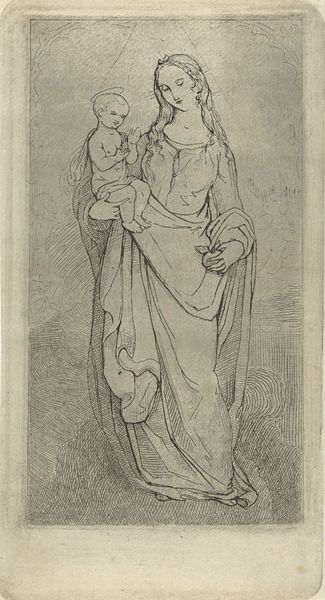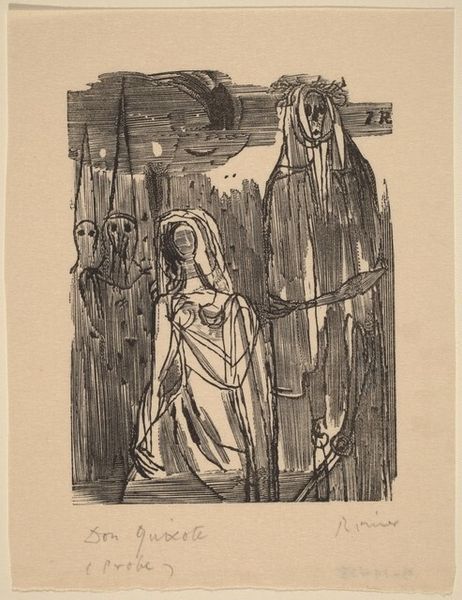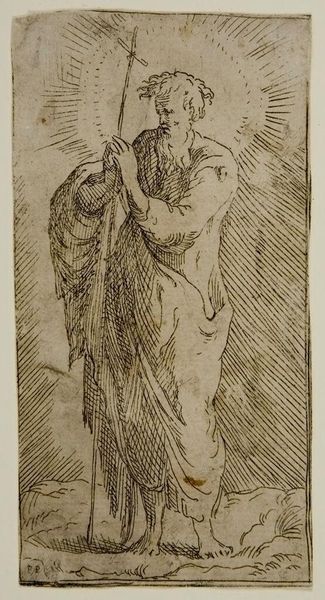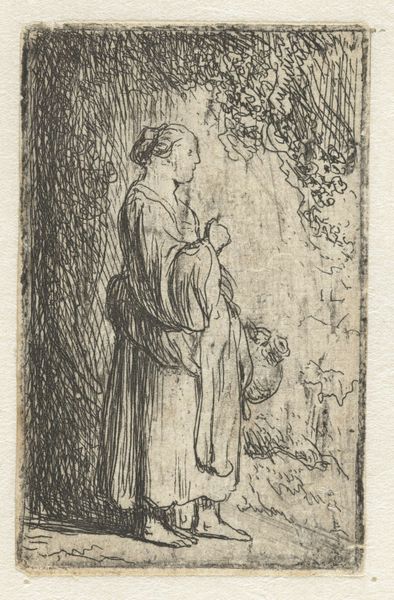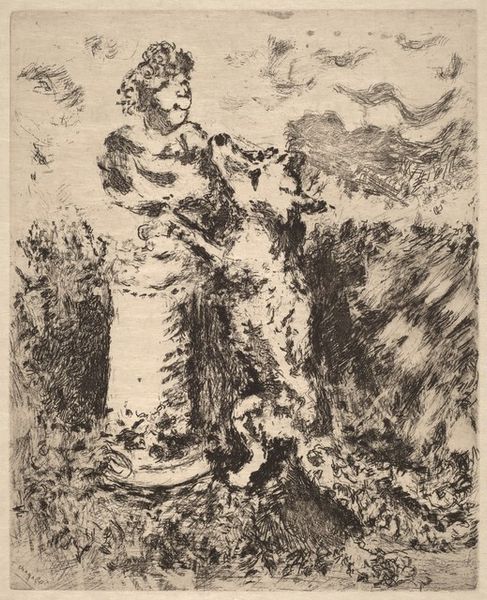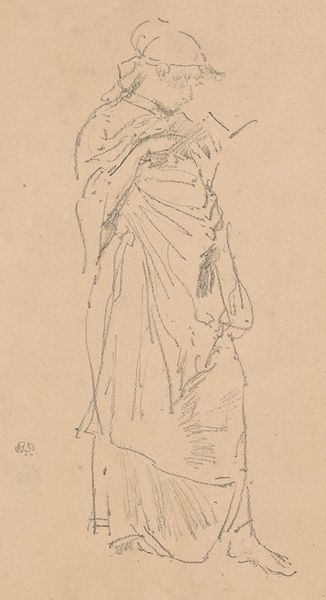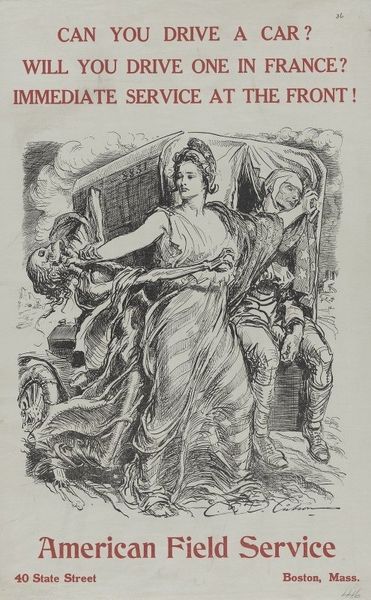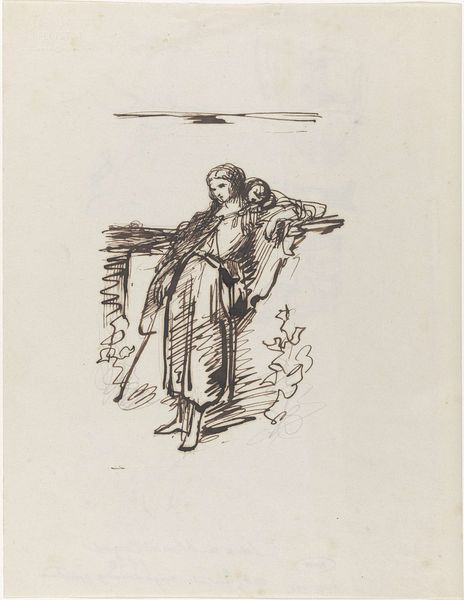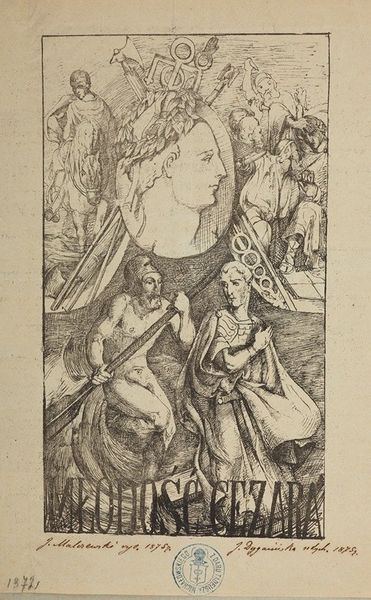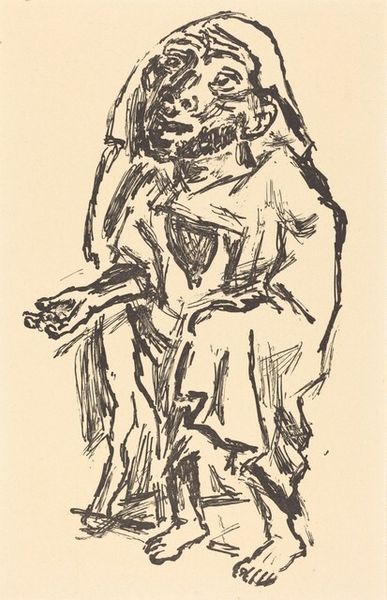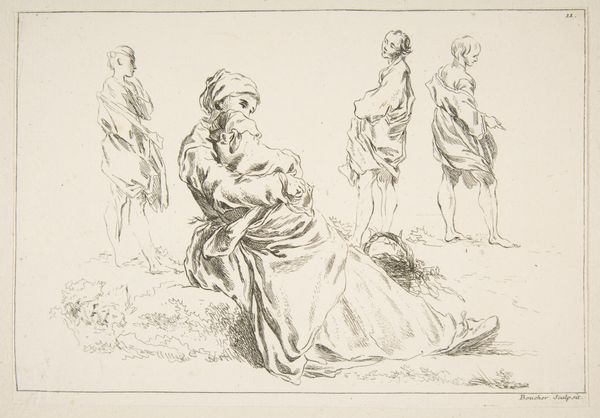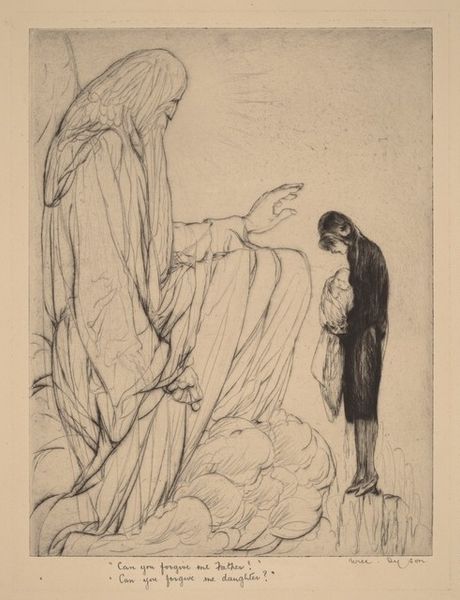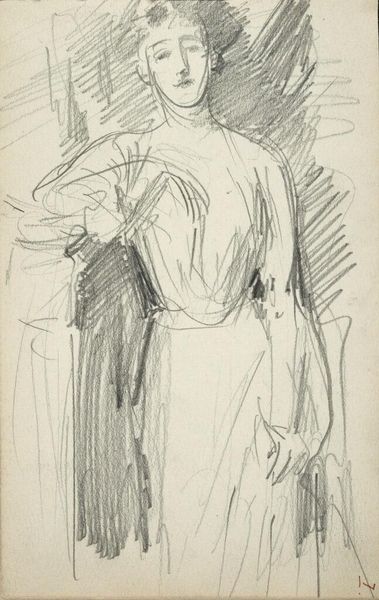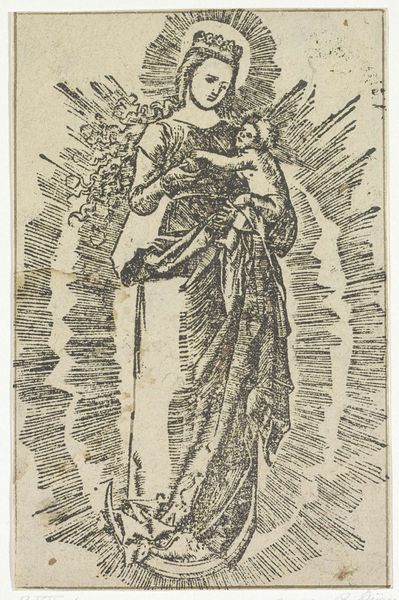
drawing, charcoal
#
drawing
#
ink drawing
#
landscape
#
figuration
#
expressionism
#
line
#
charcoal
Copyright: National Gallery of Art: CC0 1.0
Editor: Here we have Karl Caspar's "Heimsuchung," or "Affliction," a drawing from possibly 1920 rendered in charcoal and ink. There's a raw, emotional feel to it, especially with the jagged lines and almost skeletal figures. What do you see in this piece? Curator: Immediately, I see the weight of inherited memory. "Heimsuchung," often translated to visitation but possessing a darker connotation, immediately calls to mind the Visitation in Christian iconography – Mary's visit to Elizabeth while both were pregnant. But the visual language here departs radically. The landscape, with its stark, almost barren trees, seems to mirror an inner desolation rather than pastoral harmony. Editor: That’s interesting. I didn’t immediately pick up on the religious reference. Curator: Look at the posture of the figures. One comforts the other. Notice that only one is veiled, suggesting the shame associated with what's perceived as sin or affliction. Ask yourself, how does Caspar disrupt the traditional iconography? By emptying the image of its overt celebratory, devotional content, Caspar arguably critiques established, possibly patriarchal readings. This might even reflect anxieties in the interwar period after immense traumas had shattered previous social and spiritual orders. Does it prompt you to think about contemporary echoes of similar cultural anxieties? Editor: Definitely. Thinking about shame and societal pressure on women still resonates today. I’m seeing the drawing in a whole new light now! Curator: It's a potent reminder of how visual symbols carry cultural memory, often burdened with pain. Editor: Exactly. This conversation makes it much easier to link these historical anxieties with modern struggles through powerful images. Curator: A constant dance through time. The artwork reflects back at us, urging to reflect deeper in the human condition.
Comments
No comments
Be the first to comment and join the conversation on the ultimate creative platform.
